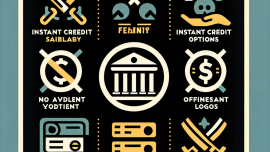
Your Pension Isn’t Boring—It’s Your Superpower
How to Grow Your Wealth Without a Six-Figure Salary
Confession time: you don’t need to wear a tailored suit or have “CFO” in your LinkedIn title to build real wealth. I know, I know—it’s easy to assume that financial independence is for Wall Street wizards or tech bros pulling in six figures by the time they’re 26. But trust me, that’s a myth that needs to be kicked to the curb.
I’m Rachel Simmons—financial coach, spreadsheet aficionado, and a woman who reached independence without an Ivy League degree or a six-figure job. Let’s talk about how you—yes, you with the regular paycheck and daily coffee habit—can take control, build wealth, and design a future that doesn’t rely on lottery luck or corporate promotions.
Step One: Master the Budget That Works for You
The Myth of the “Perfect Budget”
Raise your hand if you’ve ever sat down to budget and two weeks later it looks like you never even tried. Yep—been there, done that. The truth is, the ideal budget is the one that fits your lifestyle, values, and spending triggers.
Traditional budgeting methods can feel restrictive (“No lattes ever again!”), but the goal isn’t to become a monk—it’s to spend intentionally. My personal fave? The 50/30/20 rule:
- 50% on needs (housing, groceries, insurance)
- 30% on wants (yes, Netflix counts)
- 20% on savings & debt repayment
The key is tracking your actual expenses for a month—even if it’s messy. Once you see the truth, you can make smarter decisions. Don’t beat yourself up if you spent $70 on takeout. Just acknowledge, adjust, and go from there.
Step Two: Save First—Not Last
Here’s the biggest mindset shift you’ll need: savings should happen at the start of your month, not the end. Why? Because if you wait to see what’s “left over,” chances are, there won’t be anything.
Automate Everything
The trick is automation. Set up automatic transfers the same day your paycheck comes in:
- Emergency fund: 10% if possible
- Retirement savings: Into a Roth IRA or 401(k)
- Short-term goals: Travel, education, home buying
This habit makes saving painless. You’re not relying on willpower—you’re building systems that keep working even if you forget about them (and you will).
Step Three: Invest Consistently—Even If You Start Small
We’re busting another myth here: investing isn’t just for the wealthy. You can open a Roth IRA with as little as $50 a month. The important thing is consistency, not quantity.
Compound Interest: Your New BFF
Say hello to compound interest, the magical force that turns small contributions into serious money over time.
If you invest $100/month earning an average 7% annually, here’s what you get:
- After 5 years: $7,100
- After 10 years: $17,300
- After 20 years: $52,100
This isn’t a fantasy—just math and habit. Even if you can only set aside $25 a week, you are investing. You’re growing future wealth with every dollar.
Step Four: Kill High-Interest Debt—Strategically
Debt isn’t evil, but high-interest consumer debt (looking at you, 22% APR credit cards) is a serious drag on your future wealth. If you’re paying more in interest than you’re earning in your investments, it’s time to shift gears and focus on debt payoff.
Two Debt Payoff Strategies That Actually Work
- Snowball method: Pay off the smallest debt first for quick wins and momentum.
- Avalanche method: Focus on the highest interest rate debt first to save money.
I’m a fan of the Avalanche—because math. But if you need quick motivation, go Snowball. Either way, just pick one and stick to it.
Step Five: Grow Your Income Without Burning Out
If you’ve cut all your expenses and you’re still not hitting your financial goals, it’s time to increase income—but intelligently. Side hustles are trendy for a reason, but they should fuel your goals, not leave you exhausted.
Smart Ways to Boost Your Income
- Freelance skills: Writing, graphic design, tutoring
- Sell unused stuff: Facebook Marketplace, eBay, Poshmark
- Teach online: If you know it, someone will pay to learn it
Or, here’s a wild idea: ask for a raise. If you’ve added value at your job, don’t be afraid to negotiate. You don’t need a new gig—sometimes you just need the courage to ask.
Step Six: Embrace a Mindset of Progress, Not Perfection
One of the biggest roadblocks to wealth building is the toxic idea that you need to be perfect. You don’t. You just need to keep going. There will be surprise bills. There will be months where you fall off track.
The trick is to get back up anyway.
Tracking your net worth every month is one way I stay motivated. It’s not about obsessing over numbers—but seeing progress keeps me focused.
The Bottom Line: You Don’t Need to Be Rich to Get Rich
You don’t need a six-figure salary to build serious wealth—you need the right habits, a clear vision, and the patience to let time do its magic. Start small. Start where you are. Start today.
And remember—you’re not alone. Every step you take toward financial independence puts you ahead of the average, and closer to a life you’re designing on purpose.
Need more help designing your money strategy or setting clear goals?
Let’s talk about where you are and where you want to go. Or get to know us a bit more here.
Let’s build your brilliant, wealthy future—no six figures required.









Leave a Reply